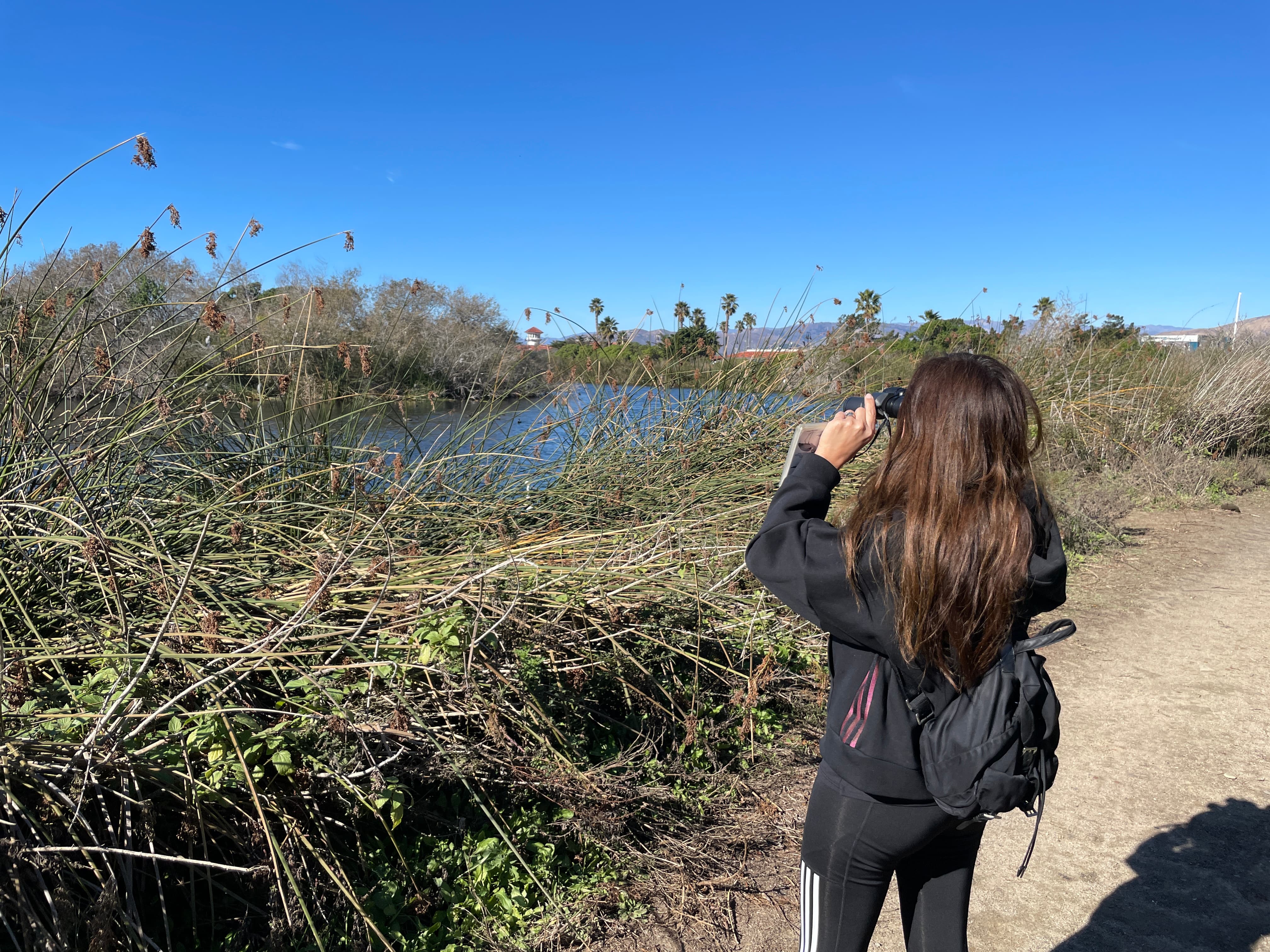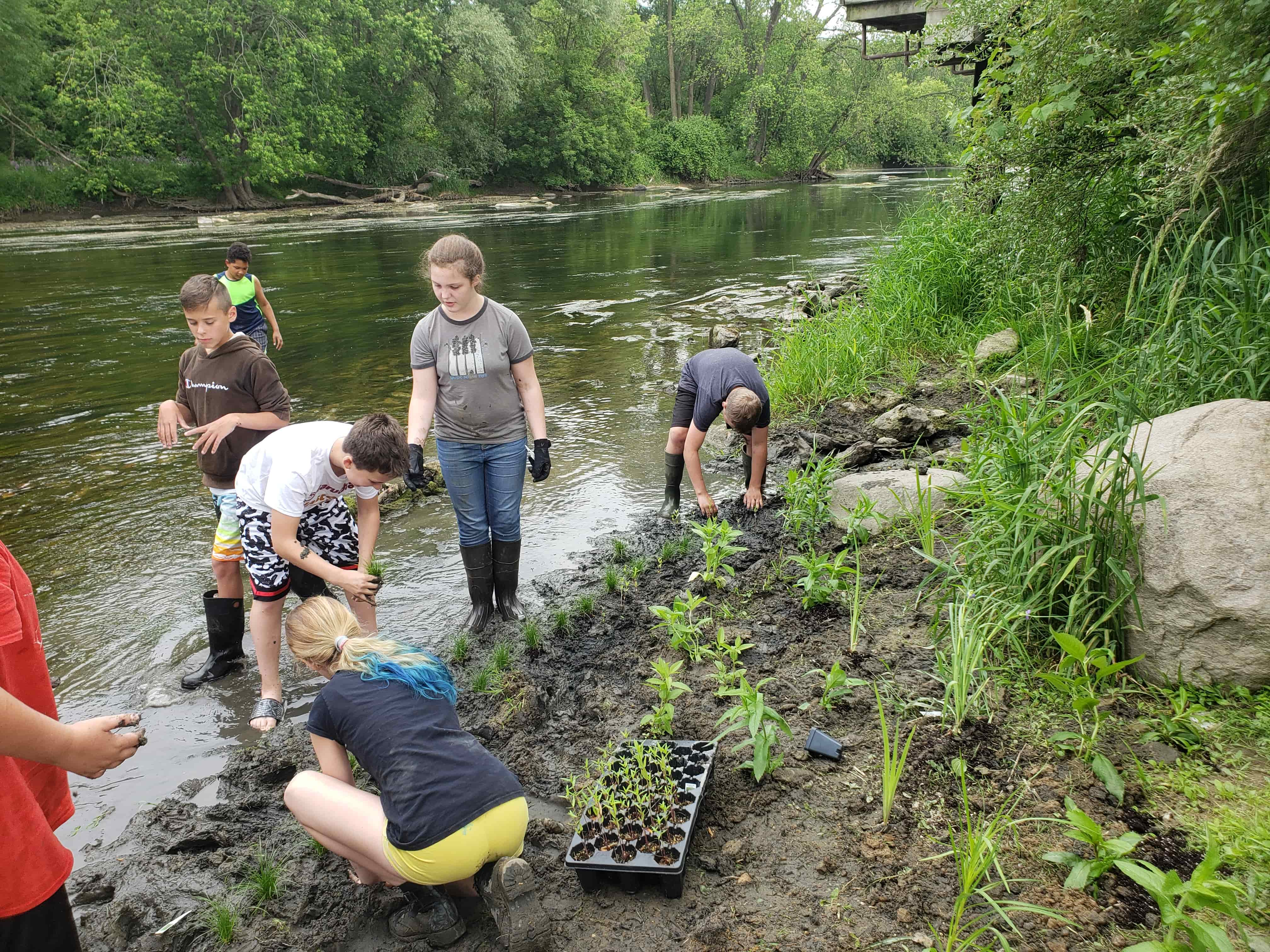Building an environmental stewardship ethic was fundamental to the design and purpose of the MWEE model. The ultimate goal of environmental education is to promote understanding, stewardship, and civic engagement around environment issues, problems, and phenomena that contribute to conserving, protecting, and restoring the environment.
The Environmental Behavior Model, championed by Hungerford and Volk, identifies important variables that lead to environmentally responsible behaviors. These include entry-level variables (e.g. environmental sensitivity); ownership variables (e.g. in-depth knowledge and personal investment in issues); and empowerment variables (e.g. knowledge and skill in using action strategies, locus of control, and intention to act).
A 2014 article written by Michaela Zint from the University of Michigan and colleagues used these variables to explore the environmental understanding and stewardship behaviors of students engaging in MWEEs. The study found that watershed education can increase students’ environmental stewardship characteristics and, therefore, their environmentally responsible behaviors.
Stewardship Characteristics Improved by MWEEs:
- Knowledge of ecology
- Knowledge of environmental issues, problems, or phenomena
- Knowledge of actions to take to conserve, protect, or restore the environment
- Degree to which students believe that they have control over environmental issues
- Intention to take action to conserve, protect, or restore the environment


MWEE Elements Important to Increasing Stewardship:
- Active engagement in learning experiences
- Reflection on their work and contributions
- Engagement in environmental action during their MWEE
- Feeling of learning something that was important to their life
More broadly, a 2018 study by Nicole Ardoin from Stanford University looked at 119 peer-reviewed studies published over a 20-year period that measured the impacts of environmental education for K-12 students. The review found clear evidence that environmental education programs provide a variety of benefits. For example, 98% of studies that examined whether students gained knowledge from environmental education saw a positive impact; 90% reported increased skills; and 83% reported enhanced environment related behaviors.
Supporting Literature:
Project-based learning and MWEEs as an approach to project-based learning provide students with the opportunity to deeply investigate an issue as well as consider solutions and actions that can be taken to address it. When students engage in solution-building as a part of their MWEE, they are more likely to take collective action and take an active role as a steward of their watershed. This is supplemental information to the above content.
- This study evaluated Meaningful Watershed Educational Experiences (MWEEs) funded by the National Oceanic and Atmospheric Administration's Chesapeake Bay Watershed Education and Training (B-WET) grant program. It also empirically explores the relationships between predictors of environmentally responsible behavior (ERB) in the Hines, Hungerford, and Tomera (1986/1987) and Hungerford and Volk (1990) behavior models. The study revealed associations between environmental stewardship characteristics, as well as between these outcomes and (1) participation in MWEEs and (2) specific MWEE instructional practices. (Zint et al., 2014)
- Many practitioners and researchers describe academic and environmental benefits of environmental education for kindergarten through twelfth-grade (K-12) students. To consider the empirical underpinnings of those program descriptions, this study systematically analyzed the peer-reviewed literature (1994–2013), focusing on outcomes of environmental education programs with K-12 students. In the resulting sample of 119 articles, the study identified 121 unique outcomes, finding that most articles reported positive findings from the programs under study. (Ardoin et al., 2018)
- Individual behavior changes alone are not enough to address today’s mounting environmental challenges. Instead, collective civic participation in environmental political processes is needed. If the goal is for citizens to effectively engage in the democratic process and influence environmental policy, political interest and efficacy must be bolstered. (Levy & Zint, 2013)